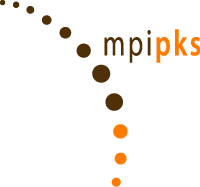
Challenges in Nanoscale Physics of Wetting Phenomena
Workshop Report
The understanding of wetting presents formidable challenges due to a multi-scale nature of the problem, where macroscopic behavior can be directly related to non-trivial microscopic and/or mesoscopic interactions. Probing the wetting phenomena down to the nano-scale can help to understand the physical processes involved in the interaction of a liquid with a solid surface.This became therefore the center of recent intense activities with the advent of new nano-materials. This multidisciplinary workshop focused on the challenges and new opportunities in modeling, experimentation and computation of wetting phenomena on small scales. Building upon new developments in the past decade, this workshop brought together mathematicians, engineers, and physicists to present their state-of-the-art theoretical and experimental techniques. Examples of applications that were discussed during the workshop included wetting phenomena in micro- and nanofluidic systems, process of ice formation on substrates, heat transfer enhancement, and flows in porous media. New concepts and approaches on superhydrophobic and textured surfaces, electrowetting, drying of suspensions on surfaces, self-assembly of particles at the contact line, evaporation and solidification of liquids on substrates and spreading and wetting of droplets were extensively discussed. We hope that the above interdisciplinary exchanges will help setting up future directions, providing new priorities for the mathematical modeling and computation as well as physical experiments.
Various groups of scientists across Europe, the United States and Asia were presented at the workshop, representing 13 countries. There were 42 invited and contributed talks amongst which were invited speakers at the forefront research, from modeling and analysis: Jens Eggers (University of Bristol, United Kingdom), Uwe Thiele (University of Münster, Germany), and Stephen Wilson (University of Strathclyde, United Kingdom); from large scale computations: Nikolaus Adams (Technical University Munich, Germany), Gustav Amberg (KTH / Södertörn University, Sweden), and Stéphane Zaleski (Sorbonne Université, France); and from experiments: Daniel Bonn (University of Amsterdam, Netherlands), Paul Steen (Cornell University, USA), Laurent Limat (Sorbonne), and Glen McHale (Northumbria University, United Kingdom). The colloquium seminar was presented by the prominent scientist and researcher, David Quéré (ESPCI & Ecole polytechnique, France), on the topic of special dynamics of water pearls.
A number of presentations were given by junior researchers and young assistant professors, such as Roland Knorr, researcher from Max Planck Institute of Colloids and Interfaces, who reported on intracellular wetting regulates autophagic degradation of fluid cargoes, Ugis Lacis, researcher from KTH Royal Institute of Technology, who presented phase field simulations matched with molecular dynamics for no-slip substrates, Hyoungsoo Kim, assistant professor from Korean Advanced Institute of Science and Technology, who discussed solutal Marangoni flows from large to small scales, and Ofer Manor, assistant professor from Israel Institute of Technology, who talked about deposition patterns of colloidal particles. A number of PhD students also had the opportunity to present their research at the workshop. The workshop provided a platform for the students to further develop a common understanding of the challenges involved in the wetting problem.
All the participants expressed their positive view of the workshop and found it to be very interesting; this resulted in many intriguing and instructive discussions. The workshop provided a unique opportunity to foster and encourage synergetic discussions on new modeling, experimental and computational approaches to wetting phenomena on nanoscales and helped to establish new opportunities in multiscale modeling for bridging the dynamics of the contact line at the mesoscopic length scales to the macroscopic flow. We believe that the workshop was widely successful in allowing stimulating interactions between researchers with various backgrounds, providing a basis for future developments in the direction of nanoscale physics of wetting phenomena. Following the success of the workshop, we will also publish a topical issue as a part of the European Physical Journal – Special Topics including some contributions at the workshop.
